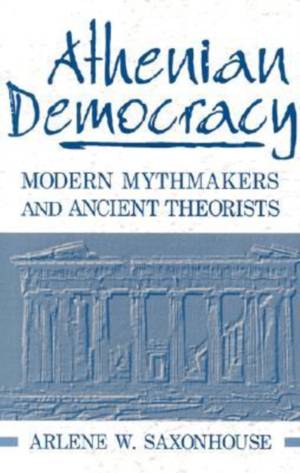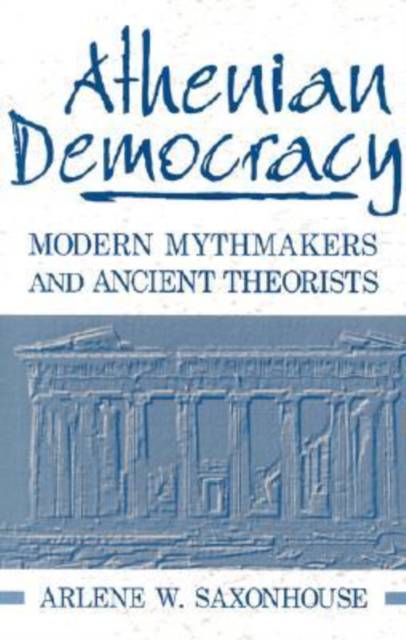
- Retrait gratuit dans votre magasin Club
- 7.000.000 titres dans notre catalogue
- Payer en toute sécurité
- Toujours un magasin près de chez vous
- Retrait gratuit dans votre magasin Club
- 7.000.0000 titres dans notre catalogue
- Payer en toute sécurité
- Toujours un magasin près de chez vous
Description
The study of the institutions of ancient democracy has experienced a major resurgence in the last decade. With Athenian Democracy, noted political scientist Arlene W. Saxonhouse offers fresh and provocative explorations of the ancient theorists that will both clarify and stimulate discussion of the role the Athenian democracy can play in our understanding of democratic institutions.
While Saxonhouse's focus is on the ancient theorists, her goal is to move beyond the traditional readings of their thought which have viewed them as "anti-democrats." By reinterpreting the ancient theorists with a view towards what they can reveal about the possibilities and limitations of democracies, Saxonhouse demonstrates that the direct observers of the earliest experiment in egalitarians self-government can give us new insights into possible theoretical foundations of democratic origins.
Following a discussion of the modern mythmakers from the past four centuries (Hobbs, Paine, Mill, and Arendt, among others) who, in praising or excoriating Athenian democracy have distorted it in order to support their own assessments of democracy, Saxonhouse then offers detailed analyses of four ancient theorists: Herodotus, Thucydides, Plato, and Aristotle. Although recent scholarship has tended to treat the ancient theorists as elitists (and therefore of little value for understanding democracy), Saxonhouse argues that to dismiss their writings would result in the loss of important insights into the nature, presuppositions, benefits, and tensions inherent in democratic practice.
By providing innovative readings of the ancient theorists, Saxonhouse demonstrates how they reveal both the complexity of democracy's achievements and its limits, both of which have too often been ignored in the contemporary focus on sovereign peoples and general wills, and on elections and representation.
Spécifications
Parties prenantes
- Auteur(s) :
- Editeur:
Contenu
- Nombre de pages :
- 188
- Langue:
- Anglais
- Collection :
Caractéristiques
- EAN:
- 9780268006501
- Date de parution :
- 01-08-96
- Format:
- Livre relié
- Format numérique:
- Genaaid
- Dimensions :
- 148 mm x 224 mm
- Poids :
- 439 g

Les avis
Nous publions uniquement les avis qui respectent les conditions requises. Consultez nos conditions pour les avis.






